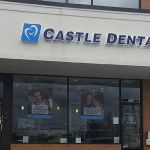Best Way to Stop Tooth Grinding at Night
- Understanding Teeth Grinding
- Common Causes of Tooth Grinding
- Natural Remedies to Stop Teeth Grinding
- Dental Solutions for Teeth Grinding
- Lifestyle Changes to Prevent Teeth Grinding
- When to Seek Professional Help
Understanding Teeth Grinding
If you've ever woken up with sore teeth or a headache, you may be one of the millions of people who grind their teeth at night. Known as bruxism, this involuntary behavior can lead to serious dental issues like worn-down enamel, increased tooth sensitivity, and even jaw pain. Understanding how and why bruxism occurs is the first step toward finding a solution.
Common Causes of Tooth Grinding
Teeth grinding can be caused by various factors, often working together. For many, it's a response to stress or anxiety. If you find yourself stressed out during the day, you may grind your teeth unconsciously at night. Another common cause is misaligned teeth, which can lead to discomfort, making it more likely that you'll grind your teeth during sleep. Additionally, sleep disorders such as sleep apnea or snoring can increase the chances of teeth grinding.
Natural Remedies to Stop Teeth Grinding
Before seeking professional dental treatments, many individuals try natural remedies to address their teeth grinding. One effective remedy is practicing relaxation techniques before bed. Meditation, yoga, or deep breathing exercises can help reduce the stress that often leads to bruxism. Another remedy is using a warm compress or massaging the jaw muscles to relieve tension. Additionally, certain essential oils like lavender or chamomile are known to have relaxing properties and can promote better sleep quality.
Dental Solutions for Teeth Grinding
If natural remedies don't seem to work, there are dental treatments available to help reduce the effects of teeth grinding. The most common treatment is the use of a custom-made nightguard. This device fits over your teeth and creates a barrier between the upper and lower rows, preventing damage from grinding. In some cases, dentists may also recommend orthodontic treatment or dental restoration to correct misaligned teeth or restore worn-down enamel.
Lifestyle Changes to Prevent Teeth Grinding
Making certain lifestyle changes can also help reduce the occurrence of tooth grinding. Limiting your intake of stimulants like caffeine and alcohol, especially before bed, can help. Additionally, ensuring that you maintain a healthy sleep routine and get enough rest can help reduce the risk of bruxism. For people who grind their teeth as a result of stress, it’s beneficial to explore ways to manage anxiety, whether through therapy, exercise, or other methods that promote relaxation.
When to Seek Professional Help
If your teeth grinding persists or worsens despite trying self-care measures, it may be time to seek professional help. Dentists can examine your teeth for signs of damage and provide solutions like a more customized nightguard or recommend advanced treatments like Botox injections to relax the muscles involved in grinding. If the grinding is linked to an underlying sleep disorder, a sleep specialist may help you find the right treatment to address the root cause.







 Long Grove Dental5.0 (1022 review)
Long Grove Dental5.0 (1022 review) Castle Dental & Orthodontics4.0 (249 review)
Castle Dental & Orthodontics4.0 (249 review) Leonard I Nunnally III DDS4.0 (107 review)
Leonard I Nunnally III DDS4.0 (107 review) Great Expressions Dental Centers - Midtown4.0 (1130 review)
Great Expressions Dental Centers - Midtown4.0 (1130 review) Barrett Family Dental of Tacoma5.0 (412 review)
Barrett Family Dental of Tacoma5.0 (412 review) Davies Dental5.0 (1 review)
Davies Dental5.0 (1 review) The Importance of Oral Health Education During Pregnancy for a Healthy Pregnancy
The Importance of Oral Health Education During Pregnancy for a Healthy Pregnancy Best Tips for Brushing Your Teeth Properly for Healthy Gums: Essential Techniques for Oral Health
Best Tips for Brushing Your Teeth Properly for Healthy Gums: Essential Techniques for Oral Health Why Skipping Dental Checkups Can Lead to Bigger Oral Health Problems
Why Skipping Dental Checkups Can Lead to Bigger Oral Health Problems Advantages of Porcelain Dental Restorations
Advantages of Porcelain Dental Restorations How Can Diabetes Cause Tooth and Gum Problems? Preventing and Managing Oral Health Issues
How Can Diabetes Cause Tooth and Gum Problems? Preventing and Managing Oral Health Issues Healthy Habits for Promoting Good Oral Health and Hygiene: Tips for a Healthy Smile
Healthy Habits for Promoting Good Oral Health and Hygiene: Tips for a Healthy Smile